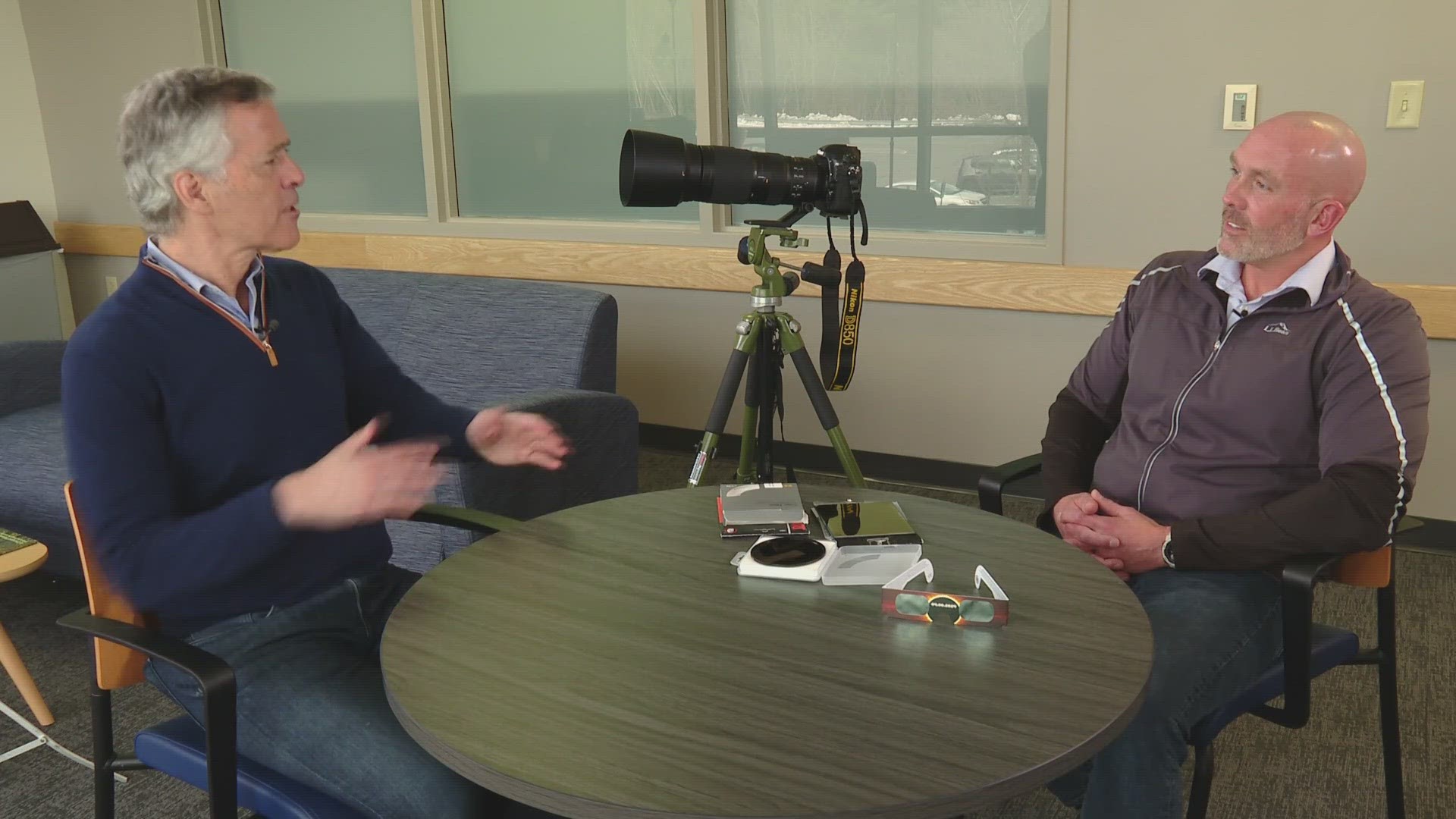PORTLAND, Maine — As a professional photographer who is self-taught, Dave Dostie has taken photos from his hometown of Augusta to Austria—but he's never captured a total solar eclipse.
If the weather’s good in Aroostook County, his plan for Monday is to head to Houlton to shoot there. Unfavorable weather could divert him to any number of other locations, whether farther west in Maine or New Hampshire, or even Vermont or upstate New York. As of now, Houlton looks promising.
Whatever happens on Monday, he's fired up and ready to go, having spent months doing detailed research about what filters, camera settings, protective lenses and more he’ll need when the moon starts to edge across the sun. You may already be thinking: there's no way you'll be able to capture images of the eclipse that can match those taken by a professional. Dostie politely disagrees.
"Everybody’s going to capture this in a different way," he said. "I think it’s really important to take in the whole camaraderie and the experience that’s happening."
So, what can we learn from a pro like Dostie about capturing the eclipse? Here are three quick bits of advice:
- Just as the sun can damage the naked eye, it can also damage your camera or phone camera. Take steps to protect those devices.
- Have a game plan beforehand. Totality in Maine will last only about three minutes. It'll be over before you know it.
- Most importantly, don't get so caught up in your photography that you miss out on the rest of the day.
"I always want the human element in my photos," he said. "I’m going where I feel there will be that camaraderie."

